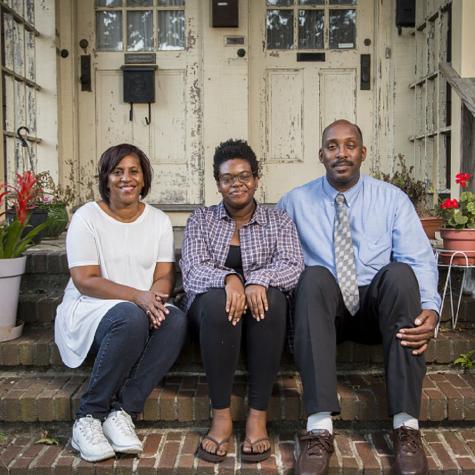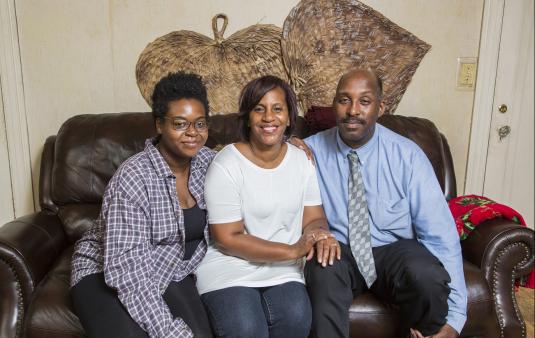How long does it take to foreclose on a home in Massachusetts?
Foreclosure is a complicated multistep process that allows mortgage lenders to repossess homes from homeowners who have missed payments on their mortgage loan. Massachusetts’s foreclosure process can take six to nine months or longer.
What is the best way to avoid foreclosure in Massachusetts?
The first step for any homeowner facing foreclosure or eviction should be to contact a HUD-approved housing counselor to better understand your options. Housing counselors are typically free and offered by a local nonprofit. BlueHub SUN may also be an option to prevent foreclosure and eviction. Find out if you qualify.
What are the steps of the foreclosure process in Massachusetts?
Understanding the steps involved in the foreclosure process can help homeowners better navigate this difficult situation. Below is a summary of the non-judicial foreclosure and eviction processes in Massachusetts. However, it is important to remember that laws can change and how courts and agencies interpret and apply them can also change. Some rules can even vary within a state.
- Right to Cure Notice:
- If a homeowner begins to miss mortgage payments, the mortgage lender can start the foreclosure process. To initiate the foreclosure, the lender must send the homeowner a "Right to Cure" notice. This notice informs the homeowner of their missed payments and provides an opportunity to “cure the default,” which means catch up on their payments, usually within 150 days of getting the notice. The notice must be sent by certified mail or delivered in person.
- Notice of Right to Receive a Modified Mortgage Loan:
- A homeowner will typically receive a notice called the “Right to Receive a Modified Mortgage Loan” alongside the “Right to Cure.” This notice gives a homeowner the opportunity to apply for a loan modification. If the homeowner responds to the notice within 30 days, the homeowner may be eligible to receive a loan modification.
- Service Members’ Civil Relief Act (SCRA) & Order of Notice:
- The SCRA protects all active-duty service members, reservists and National Guard members from foreclosure. If a service member is on active duty or has been on active duty within the last 90 days, lenders cannot foreclosure on their property. To comply with the SCRA, the Land Court will send the homeowner an “Order of Notice,” which will state that a lawsuit has begun to determine if the homeowner is an active-duty service member. If the homeowner is an active member of the military, the homeowner should respond to this notice and follow the notice’s instructions, otherwise, no response is needed.
- Notice of Intent to Foreclose and of Deficiency After Foreclosure of Mortgage:
- This is a notice sent to the homeowner informing them about rules around a future foreclosure sale. If a foreclosure sale occurs and the amount that the property sells for is less than the total amount the homeowner owes to the lender, the lender may attempt to collect on this difference, called a “deficiency,” following the sale. To be eligible to collect the deficiency, the lender must mail a notice called the “Intent to Foreclose and of Deficiency After Foreclosure of Mortgage” at least 21 days prior to the foreclosure sale date.
- Foreclosure Petition:
- If the homeowner fails to cure the default (meaning pay what is owed and bring the loan current) typically within 150 days of receiving the Right to Cure Notice, the lender can file a foreclosure petition in the county where the property is located. The petition must include a detailed description of the property, the mortgage loan (such as the amount owed), and the default.
- Notice of Sale:
- After filing the foreclosure petition, the lender must publish a foreclosure sale notice or “Notice of Sale” in a local newspaper that is readily available to the public in the municipality where the property is located once a week for three consecutive weeks. Additionally, the lender must send the Notice of Sale via certified mail to the homeowner at least 14 days before the sale date. The notice will include the date, time and location of the foreclosure auction, as well as a description of the property being foreclosed. However, if a homeowner has a loan modification application pending when they receive the notice, the homeowner should reach out to their mortgage servicer.
- Foreclosure Mediation:
- In Massachusetts, there is no statewide foreclosure mediation program; however, the cities of Lynn, Lawrence and Worcester have passed city ordinances requiring homeowners and lenders to participate in mediation. These programs allow homeowners, lenders and a third-party mediator to negotiate alternatives to foreclosure that can benefit all parties.
- Foreclosure Sale:
- As stated in #6 above, the foreclosure sale date will be provided to the homeowner in the “Notice of Foreclosure Sale” at least 14 days prior to the sale. The sale is a public auction and is typically held at the property or at the local county courthouse. The winning bidder generally must pay the purchase price immediately after the sale.
- Deficiency Judgment:
- If the foreclosure sale price is less than the amount the homeowner owed the lender, and the lender sent the homeowner the “Notice of Intent to Foreclose and of Deficiency After Foreclosure of Mortgage” 21 days prior to the sale, the lender may file a lawsuit in an attempt to collect the difference between the foreclosure sale price and the amount that the borrower owed. Since deficiency judgments can have significant financial implications, if a homeowner is facing a potential deficiency judgment, they should seek legal counsel from a qualified attorney with experience in real estate and foreclosure matters.
Post-Foreclosure Eviction Process
Although the foreclosure process in Massachusetts is usually handled directly between the lender and homeowner, the post-foreclosure eviction process in Massachusetts is “judicial,” meaning the new owner must file an eviction lawsuit and receive permission from a judge or jury to evict the former homeowner.
- Notice to Quit:
- If the former homeowner remains in the property after the foreclosure sale, the new owner (usually the winning bidder at the foreclosure auction) must serve the former homeowner with a written Notice to Quit. The Notice to Quit is a legal notice informing the former homeowner that their right to occupy the property has been terminated, and they must vacate the premises within a specified period (at least 72 hours but typically 14 days). The former homeowner must be served the notice in person by the new owner or their agent. The notice must be mailed if it is not possible to deliver it in person.
- Summary Process Summons and Complaint:
- If the former homeowner does not vacate the property within the given timeframe in the Notice to Quit, the new owner can initiate a “summary process eviction” in a local district court or housing court. A summary process eviction is a legal process used by the new owner to regain possession of the property.
- If the former homeowner does not leave voluntarily within the notice period, the new owner can file a “Summons and Complaint” with the court to start the formal eviction lawsuit. The Summons and Complaint outlines the reason for eviction, sets a date for a hearing and provides a deadline that the former homeowner must provide an answer by.
- In Preparation for the Hearing:
- After receiving the Summons and Complaint, the former homeowner must file an answer with the district or housing court where the complaint is filed. An answer is a formal response to the allegations in the complaint. The former homeowner must respond to each allegation, admitting, denying or stating that there is insufficient information to admit or deny. Besides filling the answer, the former homeowner can also file a request for a jury and a request for discovery. The answer and both requests must be filed on or before the answer date, which is listed on the Summons and Complaint (usually 20 to 30 days from the date of service).
- It is highly advised to consult with an attorney experienced to prepare for a hearing. Foreclosure and eviction cases can be highly complex, and a lawyer can help you understand your rights, assess your case and provide guidance on the best course of action.
- Court Hearing:
- The court will hold a hearing where both parties can present their case. There are several potential outcomes to the hearing, such as the below:
- Continuance: The judge may grant a continuance if either party requests more time to prepare their case or if there are legitimate reasons for delaying the proceedings. This could result in a new hearing date being set.
- Default Judgment: If the former homeowner fails to appear at the hearing, the judge may enter a default judgment in favor of the new property owner. A default judgment allows the new owner to obtain possession of the property without further proceedings, assuming they have met all the necessary requirements.
- Mediation: In some cases, the judge may refer the parties to mediation to attempt to resolve the dispute outside of court. Mediation is a process where a neutral third party helps facilitate negotiations between the parties to reach a mutually agreeable resolution.
- Dismissal: If there are procedural issues or deficiencies in the eviction process, the judge may dismiss the case. This could happen if the new property owner failed to follow proper notice requirements or other legal procedures.
- Summary Judgment: If the judge determines that there are no genuine disputed facts and that the new property owner is entitled to possession of the property, they may grant a “summary judgment” in favor of the new owner. This would lead to an expedited resolution without the need for a full trial.
- Setting a Trial Date: If there are factual disputes that need to be resolved, the judge may set a trial date for a later hearing. At the trial, both parties will present their evidence, and the judge will make a final decision on the eviction. If the court rules in favor of the new owner, the former homeowner has 10-days to appeal their case.
- Execution on Judgment:
- If the former homeowner does not appeal their case and the new owner has been allowed to obtain possession of the property, the new owner will receive an “execution” from the court. The execution is the legal document needed for eviction. The new owner must then deliver the execution to the sheriff's office or constable, who will serve it in person on the former homeowner, providing the former homeowner with at least a 48-hour notice before the date of eviction.
- However, it is possible for the former homeowner to delay the eviction by filing an Emergency Housing Restraining Order, requesting more time to relocate. The order will be filled in the same court and is up to the full discretion of the judge.
- Eviction:
- If the former homeowner does not vacate the property within the 48-hour window, the sheriff's office or constable will come to the property with movers, and they will remove all persons and belongings from the premises. The movers must take the belongings to a bonded storage facility within 50 miles of the property. The plaintiff in the Summary Process (i.e., the new owner) will pay the cost of moving the belongings to storage, but the new owner is entitled to reimbursement from the defendant (i.e., the former homeowner). The former homeowner will have six months to collect their belongings, given that they paid all storage fees. After six months, the storage facility can sell or dispose of the belongings. The former homeowner only has one opportunity to enter the storage facility without payment of the storage fees to inspect their belongings or collect items of personal or sentimental value, like passports, photographs, or important documents.










